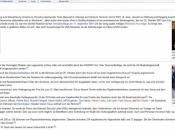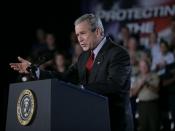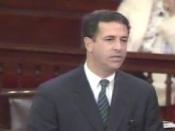Terrorism has become a very hot topic in the past few years. Terrorism was brought to the public eye on September 11, 2001 when four airplanes were hijacked and used as bombs, crashing into the World Trade Center buildings and the Pentagon. In the wake of 9/11, on October 26, 2001, President Bush signed an anti-terrorism bill known as the Patriot Act. The Patriot Act provides the federal agencies with greater authority to track and intercept communications to combat Terrorism. When the President signed the Patriot Act, the War on Terror became easier to fight and it became easier to prevent future attacks on American troops, at home and abroad. The Patriot Act has had a great effect on the prevention of Terrorism ever since the bill has been passed.
The USA- PATRIOT Act derives its name from the acronym, Uniting and Strengthening America by Providing Appropriate Tools Required to Intercept and Obstruct Terrorism Act.
Domestic Terrorism can be defined as acts dangerous to human life that are a violation of the criminal laws of the United States or of any State. The Patriot Act was passed on October 26, 2001, six weeks after the horrendous terrorist attacks on the World Trade Center buildings and the Pentagon. Congress passed the Patriot Act in the wake of the September 11th terrorist attacks on America to create a quick way to defend the country. The Patriot Act was passed in order to give law enforcement officials more power in anti-terrorism cases (Re-examining 9/11). The government's search-and-surveillance powers were expanded regarding terrorism, as well as criminal investigations. The FBI's discretion to conduct surveillance on domestic organizations was strengthened and the ability to share information between the FBI, CIA and other law enforcement agencies were also expanded (Jost, K). Both domestic and international agencies...


